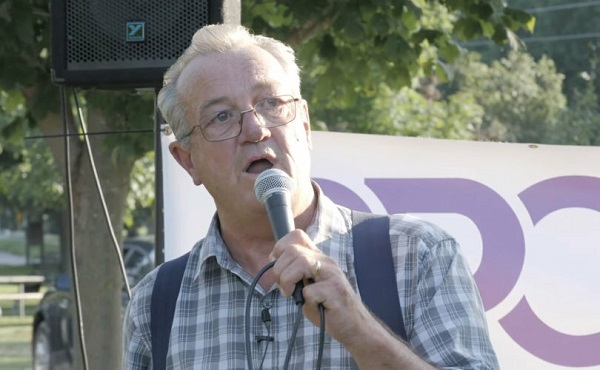Alberta
Alberta fighting federal “unconstitutional intrusion” into provincial jurisdiction
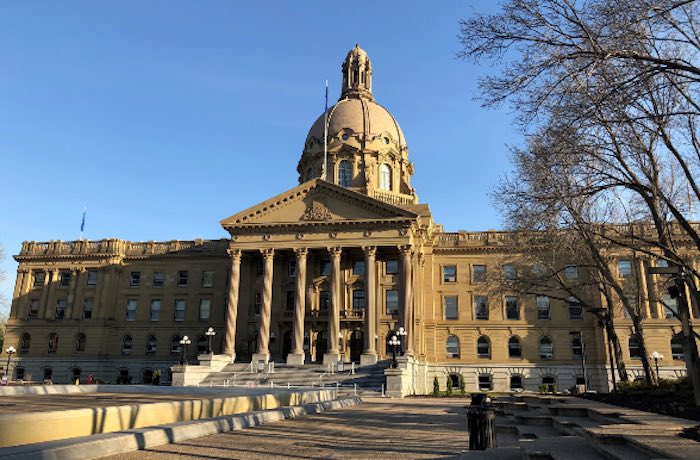
Alberta to fight federal plastics ban once more
Alberta’s government will continue defending the province’s constitutional jurisdiction and economy by intervening in Ottawa’s appeal of the Federal Court’s ruling on plastics.
On Nov. 16, the Federal Court of Canada ruled that the federal order-in-council classifying plastics as toxic is not only unreasonable but unconstitutional. The federal government has chosen to appeal this decision, ignoring calls from Alberta and others to accept the court’s decision.
As a result, Alberta’s government will participate in the appeal and will argue that the federal government’s decision to label plastic as a “toxic substance” is an unconstitutional intrusion into provincial jurisdiction.
“It is past time for Ottawa to listen. We have told them they are overreaching their jurisdiction, the private sector has told them so, and so have both the Supreme Court and the Federal Court. Ottawa cannot assume regulatory authority over any substance simply by designating it as toxic. We will continue to push back against Ottawa’s unconstitutional actions, including through this legal action, until they listen.”
The toxic designation and bans have also had a detrimental impact on Alberta’s economy. Alberta’s Industrial Heartland Association estimates the designation will potentially jeopardize more than $30 billion in capital investment in the petrochemical sector by 2030. Those risks would also put Albertan and Canadian workers at risk of losing their jobs.
“The Federal Court clearly ruled that the federal government’s plastics ban policies were unconstitutional. The federal government’s environmental policies and constitutional overreach have been heavily criticized and this ruling further confirms the indisputable nature of provincial jurisdiction in these matters. We are intervening in this appeal and will continue to participate wherever and whenever necessary to protect Alberta’s interests.”
In addition to intervening in the appeal, Alberta will monitor any further legal action taken to remove plastic manufactured items from the current Schedule 1 of the Canadian Environmental Protection Act. Several Calgary-based companies producing compostable plastic bags are now caught in the ban and will be barred from supplying Calgarians with low-emissions alternatives to traditional plastic shopping bags.
“Instead of listening to the courts and to Canadians, the federal government has chosen overreach once again. We will continue standing up for our constitutional jurisdiction while focusing on more effective ways to reduce plastic waste and keep it out of landfills.”
Alberta is committed to reducing plastic waste through initiatives like extended producer responsibility, which encourages businesses to find new ways to recycle materials and reduce waste. The province also advocates for strategies that create economies of scale, promote recycled content and develop local markets for transformed plastic waste.
Quick facts
- On April 23, 2021, the administrator in council issued an order-in-council directing that “plastic manufactured items” be added to Schedule 1 of the Canadian Environmental Protection Act, 1999 (CEPA).
- The category of plastic manufactured items includes every piece of plastic that enters Alberta.
- Once a substance is designated as toxic under CEPA, CEPA allows the federal government to make regulations regulating every aspect of that substance’s life, from manufacture to sale to use and to disposal.
- Canada subsequently enacted the Single-use Plastics Prohibition Regulations (SUPPR) prohibiting the manufacture, import and sale of six single-use plastics. SUPPR is only valid if “plastic manufactured items” is listed as toxic on Schedule 1 of CEPA.
- The Responsible Plastic Use Coalition, Dow, Imperial Oil and Nova applied for a judicial review of the order. They challenged it as unreasonable on administrative law grounds and as unconstitutional on division of powers grounds.
- On Sept. 7, 2022, Alberta intervened in the application to address the constitutional questions. Saskatchewan intervened on Oct. 24, 2022.
- The application was heard March 7-9, 2023, and the court reserved its decision.
- On Nov. 16, the federal Court of Canada issued its decision. Justice Angela Furlanetto concluded that the order adding “plastic manufactured items” to the Schedule 1 was both unreasonable from an administrative law perspective, and unconstitutional.
Alberta
Alberta puts pressure on the federal government’s euthanasia regime

From LifeSiteNews
Premier Danielle Smith is following through on a promise to address growing concerns with Canada’s euthanasia regime.
Alberta Premier Danielle Smith has sent a mandate letter to Justice Minister Mickey Amery directing him to draft and introduce new legislation on euthanasia to ensure better oversight of so-called “medical aid in dying,” or “MAiD” and to prohibit it for those suffering solely from mental illness.
In December of last year, Smith’s United Conservative government indicated that they would seek to address growing concerns with Canada’s euthanasia regime. Mainstream media outlets attacked the move, with the CBC actually reporting that: “Some are concerned new limitations could impact already vulnerable Albertans.”
Premier Smith has now followed through on that promise. The September 25 mandate letter, which lays out directives on a wide range of issues, calls for the justice minister to take steps to protect vulnerable Albertans suffering from mental illness:
As lead, work with relevant ministries to introduce legislation to provide greater oversight and appropriate safeguards for medical assistance in dying and prohibit medical assistance in dying where a person seeks this procedure based solely on a mental illness.
In an email to the CBC, Amery stated that while euthanasia law is under federal jurisdiction, healthcare falls under provincial jurisdiction. The CBC falsely claimed that mental illness “has never been an approved sole eligibility factor for MAID, though the government has considered permitting it.” In fact, the Trudeau government passed Bill C-7, which legalized MAID for those struggling with mental illness, in 2021.
That eligibility expansion has been delayed twice—in 2023 and 2024—and is now slated to come into effect in 2027. Despite those delays, Bill C-7 is still law. MP Tamara Jansen and MP Andrew Lawton are currently championing Bill C-218, the “Right to Recover Act,” which would reverse this and make it illegal to offer or perpetrate euthanasia on someone struggling solely with mental illness.
The CBC’s coverage of this move was predictably repulsive. In addition to their disinformation on euthanasia for mental illness, they reported that “Smith’s letter directing new provincial legislation on MAID comes almost a year after the government surveyed just under 20,000 Albertans on whether they think the province should step in. Nearly half of those surveyed disagreed with putting in more guardrails on MAID decisions.”
“Nearly half” is an unbelievably deceitful way of reporting on those results. In fact, 62% were in favor of legislation for a dedicated agency monitoring euthanasia processes; 55% were in favor of a MAID dispute mechanism allowing families or eligible others to challenge decisions to protect vulnerable people, such as those with disabilities or mental health struggles; and 67% supported restricting euthanasia to those with physical illnesses rather than mental illnesses. The CBC did not report on a single one of those numbers.
Provincial legislation to protect people with mental illnesses is badly needed, although I pray that by the time Justice Minister Amery gets around to drafting it, the Right to Recover Act will be passed in Parliament, and provincial action will be unnecessary. In the meantime, it is increasingly clear that much of Canada’s mainstream press coverage of this issue actively threatens the lives of the suicidal and those struggling with mental illnesses. If their dishonesty and attempts and manufacturing consent were not so routine, they would be breathtaking.
Alberta
Nuclear is the only real way to keep the lights on in Alberta
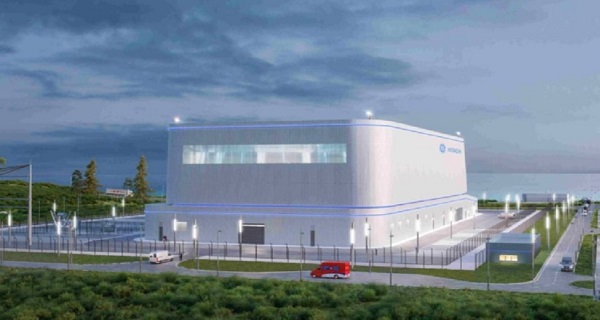
GE-Hitachi small modular nuclear reactor concept
This article supplied by Troy Media.
 By Doug Firby
By Doug Firby
Nuclear power is the best bet for Alberta but time is running out
Alberta needs nuclear power—and fast. While much of the world, including provinces like Ontario, has spent decades building reactors, Alberta remains stuck in neutral, still debating whether the technology is even worth considering.
Affordability and Utilities Minister Nathan Neudorf recently admitted as much.
“We still have an entire legislative and regulatory framework to establish to allow for this novel—as in new—type of generation to happen within the province of Alberta,” Neudorf told the Canadian Press. And now, the province wants to take a full year to gauge public appetite for nuclear power.
Oh my God. Can we not just get on with it?
Here’s the reality. More than a century ago, the province opted for the cheapest form of electricity—coal-fired generation— because Alberta had lots of it. As environmental and health concerns mounted, the province turned to natural gas to fire its generators.
Natural gas is still a fossil fuel—cleaner than coal, but far from perfect. And while renewables like wind and solar don’t have fuel costs, their output isn’t always reliable. That’s why natural gas is still needed to fill the gaps— especially when demand peaks or the wind isn’t blowing. Because it’s often the last generator brought online when renewables fall short, it sets the market price. That’s what drives electricity costs higher—even if most of the power is coming from renewables.
And speaking of renewables, Alberta has smothered a growing industry with strict limitations on where wind and solar farms can operate. According to the Pembina Institute, since October 2023, 11 gigawatts worth of wind, solar and energy storage projects have been withdrawn from the provincial grid operator’s connection queue—more than the province’s average total power demand.
Meanwhile, electricity consumption is expected to soar. The province is chasing $100 billion in data centre investment—facilities that require massive amounts of electricity to run and cool.
So, add it up: Gas-fueled generation is not seen as a good long-term bet, wind and solar has run into a regulatory brick wall, the province’s hydro potential would be hugely expensive (and environmentally complex) to develop, the population of the province has soared past five million and growing, and with the growth in EVs and the rise of more electrical home heating and cooling, we are headed toward the “electrification of everything.”
Why are we taking a year to find out whether Albertans support nuclear power? And what happens if they say no?
Now let’s also face some facts about nuclear. It’s a highly regulated industry—and rightly so— and even then, it has had its share of safety incidents. Chernobyl. Fukushima. Three Mile Island. Because of that, it can take years to move from proposals to construction. And with regulations constantly evolving, the cost of building nuclear plants often exceeds initial estimates.
Ontario’s experience is a cautionary tale. Over two decades, as Ontario Hydro built 20 reactors, it faced repeated cost overruns, missed deadlines and declining performance. By 1999, Ontario Hydro’s debt stood at $38.1 billion. Its assets? Just $17.2 billion. The government was left with a $20.9 billion stranded debt.
Thankfully, with thoughtful execution, Alberta could avoid many of the teething problems Ontario encountered as it nurtured then-nascent nuclear technology. For one, Premier Danielle Smith is rightly seeking proposals from the private sector and will only consider establishing a Crown corporation if private proposals don’t meet the province’s needs. Private sector investment drove the explosive growth in renewables (until the province brought it to a halt with new restrictions); potentially, the same could be true for nuclear.
Alberta can also benefit from decades of global experience with nuclear power. There’s no need to reinvent the wheel. Among the more promising developments are SMRs—small modular reactors. These typically produce 300 megawatts or less and can be factory-built, then transported to site. Like prefabricated homes, they offer streamlined construction, better scalability and the ability to be integrated into multi-unit facilities as demand grows.
This could be especially valuable if Alberta succeeds in attracting those power-hungry data centres.
Cost isn’t the only consideration. Water use and nuclear waste transport must also be managed carefully. But there are compelling reasons to pursue nuclear—and to lift the restrictions on renewables while we’re at it. Not the least of these is its zero emissions.
Now, we need to get going. In the most optimistic forecasts, the first nuclear reactor is at least a decade away. By then, our demands for electricity will have grown substantially, barring some sort of unforeseen breakthrough in efficiency.
You don’t have to love nuclear power. You just have to recognize the truth: Alberta needs to prepare for it now.
Doug Firby is an award-winning editorial writer with over four decades of experience working for newspapers, magazines and online publications in Ontario and western Canada. Previously, he served as Editorial Page Editor at the Calgary Herald.
Troy Media empowers Canadian community news outlets by providing independent, insightful analysis and commentary. Our mission is to support local media in helping Canadians stay informed and engaged by delivering reliable content that strengthens community connections and deepens understanding across the country.
-

 International2 days ago
International2 days agoTrump says he won’t back down on Antifa terrorism designation
-

 Censorship Industrial Complex2 days ago
Censorship Industrial Complex2 days agoTotal Surveillance, Censorship, And Behavior Control Are Real Goals Of Digital ID Advocates
-
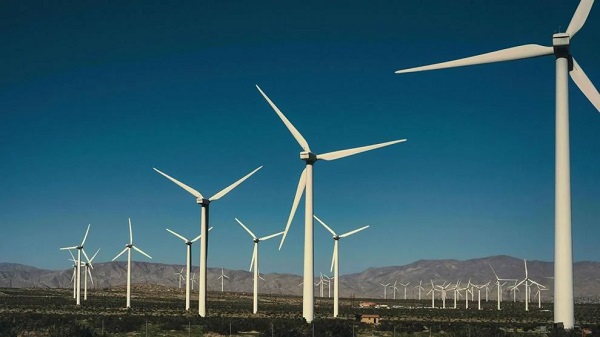
 Business2 days ago
Business2 days agoDepartment of Energy returning $13B climate agenda funding to taxpayers
-
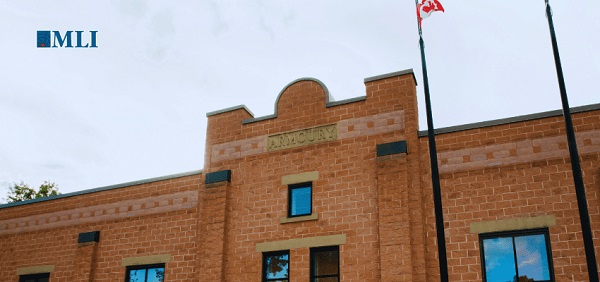
 armed forces1 day ago
armed forces1 day agoUnderfunded and undermanned, Canada’s Reserves are facing a crisis
-

 International21 hours ago
International21 hours agoWhat was the FBI up to on January 6?
-

 International21 hours ago
International21 hours agoTrump authorizes “full force” to stop Antifa attacks in Portland
-
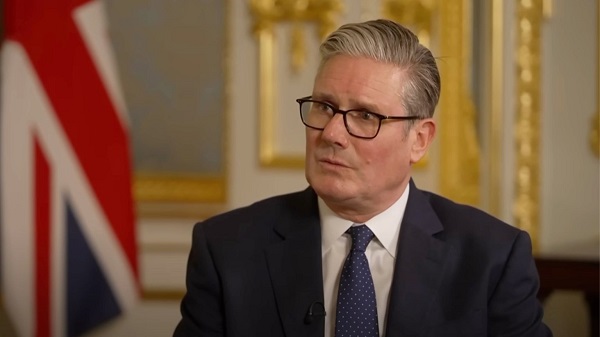
 Censorship Industrial Complex17 hours ago
Censorship Industrial Complex17 hours agoDigital ID UK: Starmer’s Expanding Surveillance State
-

 Artificial Intelligence17 hours ago
Artificial Intelligence17 hours agoThe App That Pays You to Give Away Your Voice

